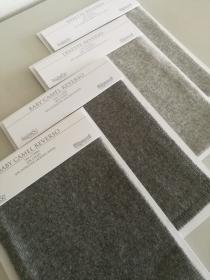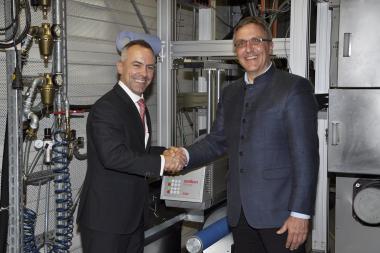Re.Verso ™ by Filpucci
On June 28th, at Sala Riunioni Area Monumentale (1st floor), Filpucci is celebrating its 50th anniversary with the press conference: “Fifty years of Filpucci - History tells the future”.
An enduring vocation for pioneering values and reliable manufacturing processes, both traceable and transparent, as shown by Re.VersoTM supply chain, a circular economy model, of which it is a member and exclusive reference point in the framework of high-end/low impact yarns for knitwear with the Collection Ninetyfive, now available in stock service, for an innovation available on request, thus marking a further breakthrough. From Stella McCartney to Eileen Fisher, from Filippa K to Patagonia, the fashion system’s big labels have opted for the regenerated yarns Re.VersoTM by Filpucci, thus sharing a new business philosophy: an environment-conscious and responsible approach, with does not relinquish style, but elevates it far forward style & trends. Filpucci, true Italian excellence for 50 years, has widened its range of smart Re.Verso™ products thus encompassing:
• The yarn Baby Camel Re.VersoTM produced with Re.Verso™ baby camel and mixed with 50% extra-fine Merino Wool comes in two yarn counts (1:13000nm and 2:13000 nm twisted). A delicate, rich and super soft yarn, with indescribable touch, which preserves its natural proprieties and comes in a selection of refined shades.
• The new Divette item, coming in two yarn counts (1:15000nm, 2:26000 nm twisted), yet again sheds light on the pioneering attitude of a manufacturer aiming to offer soft and creative combed and twisted yarns, that are unmistakably innovative and come in different degrees of thinness. Sophisticated, exceptionally soft and warm yarns, made with cashmere Re.Verso™ fibres mixed with extra fine wools.
CLASS, Filpucci. RE.Verso
GB Network Marketing & Communication








